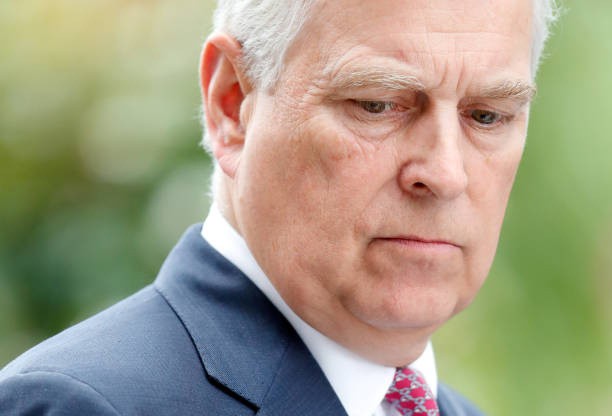Prince Andrew's Annual Allowance Cut Off By Brother King Charles After the Queen's Death, Here's Why

Prince Andrew had already received his share of inheritance before Queen Elizabeth II's passing in September 2022, as revealed in a new book by royal biographer Robert Hardman.
Read more: Princess Beatrice Announces She's Pregnant With Baby No. 2 With Husband Edoardo Mapelli Mozzi
Hardman's book, 'Charles III: New King, New Court, The Inside Story,' released Thursday, November 7, examines Andrew's financial situation after being stripped of his title and losing taxpayer-funded support. The author notes that King Charles III, Andrew's brother, proposed moving him from the Royal Lodge to Frogmore Cottage, previously occupied by the Duke and Duchess of Sussex, as a cost-saving measure.

The Royal Lodge, a 30-room residence, offers a stark contrast to Frogmore Cottage, which has only five bedrooms. Hardman explained that Charles intended to cut off Andrew's annual allowance if he rejected the move. Andrew "had assured the Palace that he would be able to meet all these bills through a combination of money left him by the Queen and his own commercial activities." A royal insider commented, "If he can find the money, then that is up to him, but if not, he will find that the King does not have unlimited patience."
Read more: Meghan Markle and Prince Harry's Frogmore Eviction is Part of Queen Elizabeth II's Plan: Report
Following the Queen's death in September 2022, Charles inherited her £650 million estate, while Princess Anne and Prince Edward continue to receive Sovereign Grant funds as working royals. Andrew, however, relies on his prior inheritance and previously received a reported £1 million annual allowance from Charles.
Hardman pointed out potential challenges for Andrew, writing, "While the Duke may find the money to cover the bills for one or two years, the position may not be sustainable once he passes retirement age."

Recently, the monarchy's finance director informed Andrew that he would no longer receive an allowance from the king. "The Duke is no longer a financial burden on the King," a royal source told Hardman. It was noted that Andrew claims to have established alternative income sources through his connections in international trade. However, whether this financial stability is viable long-term remains uncertain.
A major financial burden for Andrew is security costs. The Royal Lodge lies outside the Windsor security cordon, requiring private security that costs "a substantial seven-figure sum annually," according to Hardman. While the queen had covered these expenses during her lifetime, Andrew may now need to use his inheritance to manage these costs after refusing the move to Frogmore Cottage.
© 2025 Enstarz.com All rights reserved. Do not reproduce without permission.






